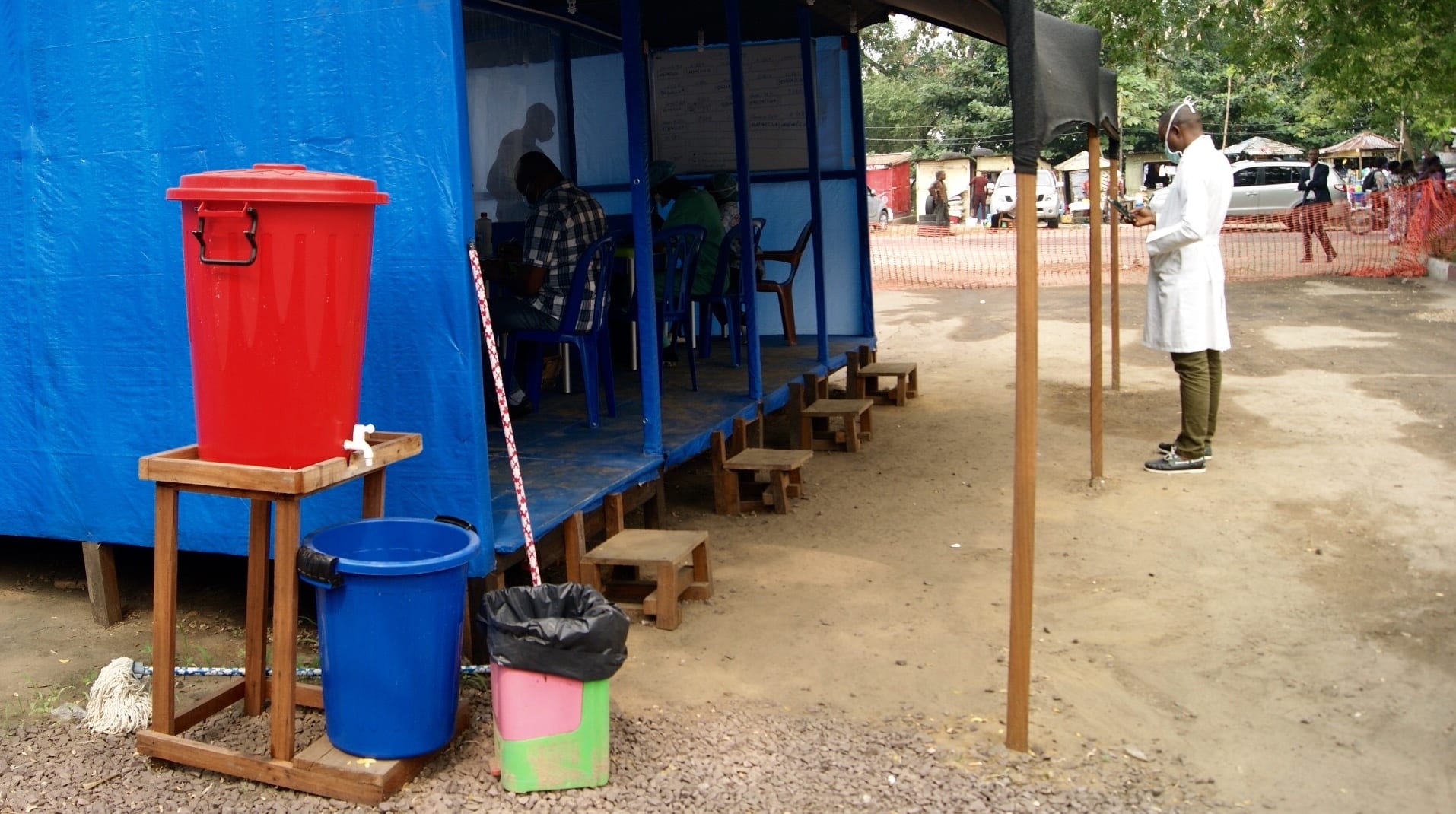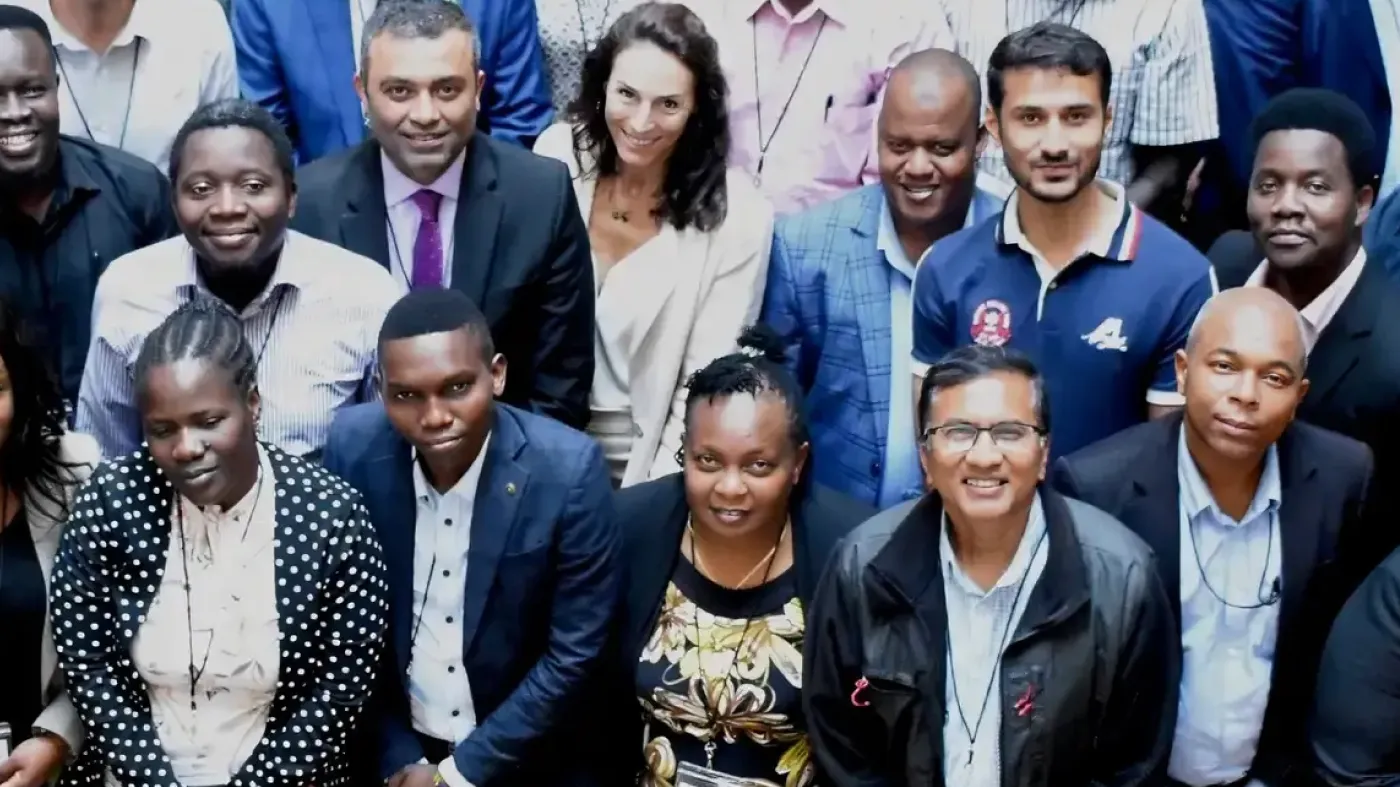Download All Country Data
The Democratic Republic of Congo (DRC) faced enormous health care challenges well before the onset of COVID-19. DRC accounts for more than 1 in 10 malaria deaths worldwide and cases of tuberculosis have been steadily rising. The country is struggling with Ebola epidemics in its east and northwest regions, in addition to experiencing the world’s largest outbreak of measles, which has killed more than 6,000 people since 2019.
Having faced these overlapping outbreaks of infectious disease before, the country’s health care workforce also has unique insight into what to expect from a new global pandemic, and what it takes to prepare for it.
Due to limited but growing availability of testing, the scope of COVID-19 transmission is still uncertain in many regions of DRC. But in partnership with the Alliance for International Medical Action (ALIMA), an international humanitarian health care non-profit that has been working there since 2013, the country is readying for a possible surge in cases by further strengthening its health system, and preparing its population.
Strategic investments and effective partnerships
Responding quickly to the country’s first case of COVID-19 on March 10, Resolve to Save Lives partnered with ALIMA to train health care providers to better manage coronavirus patients and to prevent further spread of the disease. In close coordination with the DRC’s Ministry of Health, ALIMA has held trainings in over 30 facilities across the country, including the eastern region, where the first cases were identified, and the nation’s capital of Kinshasa, where the vast majority of cases are now concentrated.
Doctors, nurses, and other clinicians have attended the three-day sessions, which cover treatment of acute COVID-19 cases, techniques for reorganizing health facilities to reduce infection, and other prevention measures. The curriculum is based on guidance from the World Health Organization, and participants are grouped by clinical role to receive training specific to their work. By mid-June, over 500 clinicians had participated and taken lessons back to their colleagues in the health care facilities where they work.
Many remote health care facilities in DRC lack some basic infrastructure crucial for curbing the pandemic. On a recent tour of facilities in the eastern province of Beni, ALIMA’s Country Representative for COVID-19 response, Dr. Baweye Mayoum, observed that more than 80 percent lacked their own piped water, relying instead on rainwater collection or external sources. That’s why Resolve to Save Lives and ALIMA supplied health facilities across the country with kits to help maintain proper hygiene and sanitation—including chlorine powder and soap to disinfect water and medical equipment—along with personal protective equipment for staff to keep themselves safe.
Resolve to Save Lives and ALIMA have also conducted educational trainings with the families of patients and numerous civil society organizations—from women’s groups to development associations to motorcycle clubs—raising awareness about how the virus is transmitted and offering simple actions that individuals, families and communities can contain its spread. Those trainings have reached over 23,000 people to date.

Impact: plain to see
The impact of these investments is apparent as soon as you step into a health facility, says Dr. Mayoum. Visitors previously moved freely; now they use a single entrance where they are subject to a temperature check and mandatory hand-washing, then are triaged depending on their health status, reducing the chance infected patients will expose others to disease. Staff are generally outfitted with face shields and gowns. These policies create a safer environment for managing COVID-19 and will prevent other infections in the long term.
Health care workers who participated in the trainings showed significant improvements in their knowledge of COVID-19, according to pre- and post-tests. “All levels of staff emerge from these trainings better prepared to safely manage this new virus,” says Dr. Mayoum. Because many had previous experience responding to Ebola, they were particularly interested in differences with COVID-19 in terms of its risk of transmission and the personal protective equipment necessary to do their work safely.
ALIMA’s ability to reach and make documented improvements in such a wide network of health care workers and facilities in a health system challenged by multiple infectious disease outbreaks is an incredible achievement.
Dr. Merveil, a general practitioner who participated in the training, said it was very important to him. “These subjects concern us; we need to deepen our knowledge. We never stop learning.”
Photo credit: Philine Moucheront / ALIMA






